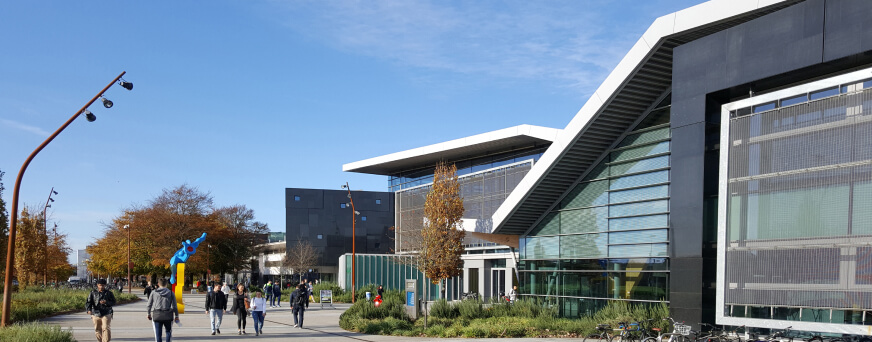Explore University of McCordsville’s Eligibility Criteria for Students Worldwide
High School Diploma, GED or equiv. International Education
84 Hours
1 Year (Self-Paced) Program
14
This course creates an understanding of the principles of building construction and its impact on firefighting strategy. This course explains building materials and processes that are involved in the construction of structures and provides you with the knowledge required to operate safely and effectively within residential or commercial buildings.
This course covers the acquisition of appropriate reliability modeling and risk analysis tools to complement the basic and specific engineering knowledge for the technological area of application. This course provides an introduction to the principal concepts and issues related to the safety of modern industrial activities.
This course provides practical information regarding technology, management, and regulatory compliance issues, covering crucial topics like organizing, staffing, directing, and evaluating occupational safety programs and procedures.
This course covers experimental data relevant to the understanding of fire behavior of materials and appeals to all those working in fire safety engineering and related disciplines.
This course covers all types of fires. It is organized to present the theory and application of firefighting principles from the development to the extinguishment phase; it stresses on the importance of safety for firefighters
This course progresses from the important overview relationships of organ system physiology down to the tissue, cellular, and subcellular level. This course will teach you on how you can trace arteries, veins, and nerves through their courses and bifurcations.
This course addresses the growing interest in the legal, ethical, and regulatory aspects of integrating care into conventional clinical settings. Topics of this course include Race Discrimination, Americans with Disabilities Act, Family Medical Leave Act, Physical Fitness, Critical Incident Stress Management, and Arbitration/Mediation.
This course addresses the specific needs of firefighters and other professionals who deal with hazardous materials. This course encompasses the key aspects of safely handling hazardous materials and the response actions to be implemented during terrorist activity, hazardous transportation mishaps and other disasters.
This course explores the “why” and “how” of human engineering/ergonomics. It deals with how the human body works and interacts with environment. Ergonomic models, methods and approaches are also detailed in this course. It discusses why and how to use ergonomics in workplace.
This course is a great tool as it goes to great lengths to stress steps that can be taken to improve the safety of individuals not only in home, but also in workplace, and on road. Natural and man-made disasters, safety and care procedures are a highlight of this course.
This course provides you with the most current information available on a wide range of topics. Topics covered include workers' compensation, fault tree analysis, hearing protection, environmental protection, and fire protection, planning for emergencies, behavioral approaches, crisis interventions and social interventions.
This course blends basic risk management and insurance principles with consumer considerations. It provides even more flexibility in its organization by giving an overview of the insurance industry first, before discussing specific plans. Course discusses in details about the different insurance plans prevailing in financial markets.
This course covers the specific details and composition of a human body. It will enable you to develop a foundation of basic concepts and essential knowledge, and master terminology and principles important to an understanding of the human body.
This course offers a range of information on fire prevention history, education, organization, practices, and careers. It includes up-to-the-minute coverage of incident effectiveness, building construction, fire department’s structure and functions, and techniques and methods used to prevent or control fire loss.
| Tuition Fee Breakdown 1 | Cost |
|---|---|
| ASSOCIATE TO BACHELORS DEGREE | $18,480 |
| Medical Insurance | $0.00 |
| Personal Expenses | $0.00 |
| Study Materials | $0.00 |
| Food Cost | $0.00 |
| Total Tuition Fee | $18,480 |
At University of McCordsville, we champion the convergence of affordability and opportunity. Our steadfast commitment to accessible education guarantees that high-quality learning is accessible to all. By eliminating financial obstacles, we grant students the freedom to thrive without the burden of overwhelming tuition costs, empowering them to carve out a bright and promising future.

| Topics Covered in This Course: | |||||||||||||||||||||||||
|
| Topics Covered in This Course: | |||||||||||||||||||||||||||||||||||||||||||||||||||
|
| Topics Covered in This Course: | |||||||||||||||||||||||||||||||||||||||||||||||||||||||||||||||||||
|
| Topics Covered in This Course: | |||||||||||||||||||||||||||||||||||||
|
| Topics Covered in This Course: | |||||||||||||||||||||
|
| Topics Covered in This Course: | |||||||||||||||||||||||||||||||||||||||
|
| Topics Covered in This Course: | |||||||||||||||||||||||||||||||||||||||||
|
| Topics Covered in This Course: | |||||||||||||||||
|
| Topics Covered in This Course: | |||||||||||||||||||||||||||
|
| Topics Covered in This Course: | |||||||||||||||||||||||||||
|
| Topics Covered in This Course: | |||||||||||||||||||||||||||||||||||||||||||||||||||||||||
|
| Topics Covered in This Course: | |||||||||||||||||||||||||||||||||||||||||||||
|
| Topics Covered in This Course: | |||||||||||||||||||||||||||||||||||||
|
| Topics Covered in This Course: | |||||||||||||||||||||||||||||||||||||||||
|
“Every minute spent under the guidance and supervision of the University of McCordsville was worth it for a student like me.”

“An amazing online platform, supportive staff, and valuable career resources. I highly recommend the University of McCordsville.”

“Scholarship opportunities, personalized support, and impactful learning. I am grateful for my journey at the University of McCordsville!”
